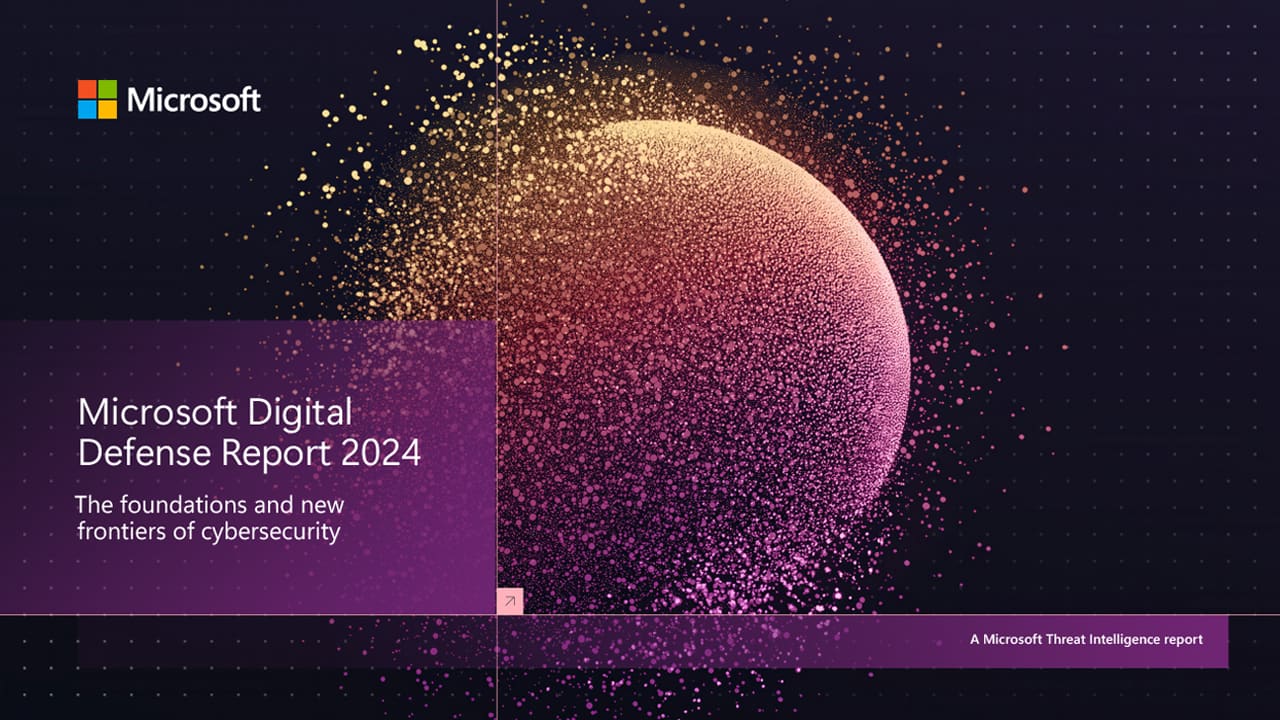In an increasingly interconnected world, cyber threats are reaching unprecedented levels. According to the latest Microsoft Digital Defense report, their customers face over 600 million cyber attacks daily. These range from ransomware and phishing to identity attacks, highlighting the urgency to strengthen digital defenses globally.
The fifth annual Microsoft Digital Defense report, covering the period from July 2023 to June 2024, highlights a concerning escalation in cyber operations carried out by state-sponsored actors. These actors are not only seeking espionage but also increasingly collaborating with cybercriminal groups, sharing tools and techniques in a dangerous convergence of cyber threats.
The complicity between states and cybercriminals
One of the most alarming findings of the report is the growing use of cybercriminals by state actors. For example, Microsoft detected that criminal groups supported cyber espionage operations targeted at Ukraine, using malware to compromise military devices. In other cases, actors linked to Iran used ransomware to sell stolen data from an Israeli website.
North Korea has also ventured into the ransomware realm. A recently identified group developed malware called FakePenny, which was used to attack defense and aerospace organizations, showing both intelligence gathering and monetization interests.
Geopolitical conflicts fuel cyber threats
State-sponsored cyber activities have mainly focused on active military conflict zones such as Ukraine, Israel, and Taiwan. Russia has concentrated most of its cyber attacks on Ukraine and NATO member states, while Iran has intensified its cyber operations following the outbreak of the conflict between Israel and Hamas. The influence of these attacks extends beyond the conflict borders, with disinformation campaigns attempting to manipulate global public opinion.

Regarding China, the Microsoft report highlights that cyber actors from that country continue to focus their attacks on Taiwan and other Southeast Asian countries, while closely monitoring geopolitical movements in the region.
Cybercrime and U.S. elections under threat
With the upcoming U.S. elections, Russia, Iran, and China have intensified their influence operations, seeking to sow discord on sensitive political issues and undermine trust in the electoral system. Additionally, Microsoft has detected an increase in the use of fake domains (homoglyphs) designed to impersonate official pages and distribute malware, a strategy used by both cybercriminals and state actors.
The impact of profit-driven cybercrime
While state threats are severe, financially motivated cybercrime remains a central concern. Microsoft reports a 275% increase in ransomware attacks compared to the previous year. Despite this increase, the number of attacks successfully encrypting data has decreased, partly due to improvements in cyber defenses. However, technology scams have increased by 400% in 2024, with over 100,000 daily attempts detected by Microsoft, demonstrating how quickly cybercriminals evolve their techniques.
The role of artificial intelligence in cyber threats
An emerging trend is the use of artificial intelligence (AI) by both cybercriminals and state actors. Microsoft has detected that actors linked to China are using AI to generate images and manipulate content in disinformation campaigns, while Russia has experimented with AI in fake audio. While these techniques have not proven decisive so far, it is a sign that malicious actors are exploring new ways to exploit emerging technology.

However, AI also presents as a promising tool to strengthen cybersecurityCybersecurity solutions are essential in today’s digital age…, allowing industry professionals to respond more quickly to threats and manage large volumes of alerts more efficiently.
International cooperation, key to cyber defense
The report emphasizes the importance of cooperation between governments and private companies to curb the increase in cyber attacks. Microsoft has launched its Secure Future initiative, aiming to strengthen security in its systems and protect its customers. However, for these efforts to succeed, it is crucial for authorities to take stronger actions against those responsible for cyber attacks, imposing significant consequences to deter these activities.
As cyber threats continue to grow in volume and sophistication, the challenge of protecting individuals, businesses, and governments requires a coordinated approach and ongoing commitment to strengthen digital defenses globally.
Source: Microsoft

